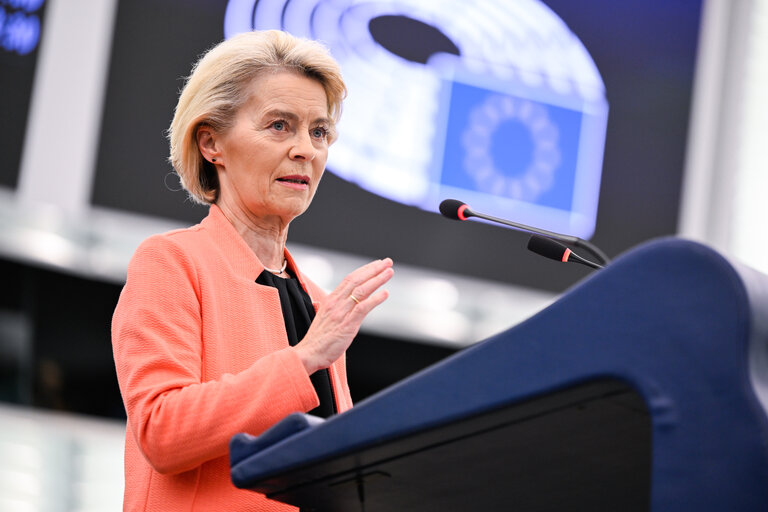European Commission President Ursula von der Leyen announced on Sunday that the European Union will delay its trade countermeasures against the United States, which were set to take effect on Monday, in the hopes of reaching a negotiated settlement before an August 1st deadline set by President Trump. The American leader’s ultimatum was announced on Saturday, threatening 30% tariffs across the board on goods from the EU and Mexico if no agreement was reached by that date. The move raised the stakes in already-tense negotiations between the United States and its allies.
“The United States has sent us a letter with measures that would come into effect unless there is a negotiated solution, so we will therefore also extend the suspension of our countermeasures until early August,” von der Leyen said in a press briefing on Sunday. “At the same time, we will continue to prepare for the countermeasures so we’re fully prepared.”
The EU Commission president reiterated that the bloc has targeted a broad range of goods totaling around $24.5 billion in value, from culturally significant products manufactured in the United States like Harley Davidson motorcycles and appliances; to raw materials like timber and steel; as well as goods from the agricultural sector like poultry and soybeans.
Those potential measures were drawn up in response to President Trump’s 25% tariffs on steel and aluminum from the EU announced on March 12th, while another list of measures targeting just under $84 billion in goods has also been drawn up in response to 10% tariffs across the board announced by the White House in April. These target a mix of industrial goods and high-end agricultural products like Kentucky Bourbon, as well as cosmetics and fashion.
Heads of state in the meantime have criticized the announcement from President Trump on Saturday. President of France Emmanuel Macron declared his “strong disapproval” of the measures on social media. Meanwhile, President of Mexico Claudia Sheinbaum said in a public appearance on Saturday that she believes her country and the United States will reach “better terms.”
Reporting from the New York Times indicates that the European Union and many other countries are seeking to redraw the lines of trade to minimize their exposure to the United States’ chaotic trade policy, as demonstrated by a new free trade agreement with Indonesia. Ambassadors from all 27 EU member states met on Sunday to discuss the matter, while their trade ministers are scheduled to meet on Monday to discuss trade relations with the US and China.










